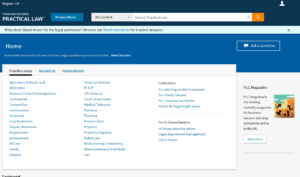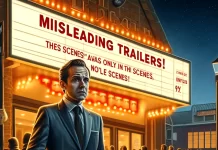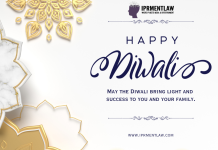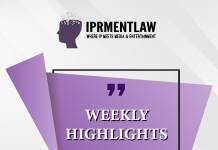In what is being termed as a David vs. Goliath litigation, West Publishing Corporation and Thomson Reuters Enterprise (proprietors of the premium legal research tool “Westlaw”) have lodged in a Copyright Infringement claim and a Tortious interference action against ROSS Intelligence, a new and upcoming Machine Learning oriented solution to legal research. The basic premise of this action rests upon the allegation that ROSS has been attempting to create a business by appropriating critical features of Westlaw, essentially building a competing product. The plaintiff West Publishing, therefore, in its petition, has stated that they are being put in an unfair position of having to compete with a product they “unknowingly” helped create. This petition was filed on 6th May, 2020 in the United States District Court at Delaware.
To build upon their claim, the petitioners have further alleged that ROSS induced a third party “Legal Ease Solutions” – a legal research support company, to engage in unlawful reproduction of Plaintiff’s copyrighted content and distribution of the same en masse to ROSS. It has alleged an infringement and a breach of West’s service agreement with Legal Ease, wherein Legal Ease was contractually not permitted to sell, sub license, display, store or transfer the products of West in bulk, that could replace or substitute its products and was only allowed to store such insubstantial amounts that could not end up facilitating the development of a substitute. Although, Legal Ease has not been impleaded in this action and this solely seems a case claiming contributory/ induced/ vicarious infringement. The major allegation herein is that Legal Ease procured tons of research in bulk and supplied all the same to ROSS at its direction to build a competitive product. It has also been alleged that ROSS used this research and “copied” the same in order to build its research platform.
IP related claims by West:
- The “Derivative work” created by ROSS is infringing the copyrights of West
- ROSS is contributorily liable for the copyright infringements by Legal Ease and for material inducement
- ROSS is vicariously liable for the copyright infringement by Legal Ease.
Issues and relevant questions to be addressed:
- Whether a Copyright subsists in the works of Westlaw, and to what extent?
- Whether the use of research amounts to a derivative work and a consequent direct infringement by ROSS?
- If a copyright subsists in the work sought by ROSS, whether a claim for either contributory/ induced liability or vicarious liability exists (in these limited factual revelations)?
The Decision in West Publishing v. LegalEase Solutions LLC
Very interestingly, in a decision rendered on 5th May 2020 (surprisingly recently!!) West Publishing and Legal Ease, on a similar issue of Legal Ease breaching its service agreement in and downloading proprietary material of West Publishing, have privately settled upon a permanent injunction for Legal Ease to avoid such breaches. This is a voluntary and consented settlement which was negotiated upon by the parties avoiding further litigation. The case of direct infringement has clearly been rescinded, without a judgment on merits, which in fact makes me wonder about the need for this action, especially on grounds of contributory infringement.
ROSS Intelligence’s response to the allegations (some contrary facts)
In an interesting response, ROSS Intelligence has relied upon the core point of decisions and judgments, along with statutory laws, not being copyrightable, to defend their claim to datasets and their employment of LegalEase to obtain the same. ROSS claims to have never sought any editorial/ proprietary data i.e. the copyrightable annotations including headnotes, case summary, paging etc. It merely contracted LegalEase for direct decisions, as its mechanism of business was legal search along lay questions, using technology to extract direct answers from case law using machine learning (for different semantics in which a lay researcher could frame questions). In its response, ROSS has gone to factually claim (citing email exchanges) that even when LegalEase did send such editorial/ proprietary information along with decisions, ROSS had clearly advised them not to, adding that it was “added noise”. Although, the factual correctness of this must be analyzed at the evidence stage of this trial.
Assuming the facts claimed herein to be limited to these, I will go on to discuss the legal claims and the viability of each of them.
Copyrightable elements in the content showcased by Westlaw
Westlaw primarily consists of various judgments and statutes which are incorporated in a search database with editorial content like headnotes, annotations, summaries, notes of decisions as well as the West Key Number system used in arranging and facilitating quick access to the decisions and efficiently organizing them on the database. Before evaluating the claim of infringement, it seems essential to filter out the copyrightable and protected proprietary content out of these, which are statutorily prohibited from being copied.
Before moving towards the copyrightability of the database, I will evaluate whether there exists any copyright in the decisions and statutes, as showcased on Westlaw as well as in the manner presented. Very recently in the decision of Georgia v. Public.Resource.org, the Supreme Court of United States has reinforced the “Government edicts” doctrine which basically states that “no one can own the law” implying that legal documents and judgments are not copyrightable in the first place, and judges and legislators cannot be considered as the author of the work they produce in the course of their official duties. This principle has been held applicable irrespective of being statutorily codified or not. Very interestingly, this decision has clearly ruled that Westlaw as a database cannot claim any copyright over what it compiles primarily, due to them being non-copyrightable material, essential to be accessible from the point of view access to law. What Westlaw can however seek copyright on are the various editorial components and summaries (apart from annotations like page numbers, information of per incuriam/ dissenting etc. which are covered by the merger doctrine), headnotes etc. which are showcased along with the decision. If these elements are copied, then a claim to infringement can arise. In the Matthew Bender case in the United States it was clearly held that judgments, statutes, and annotations like data on procedural history, attorney information, parallel citations as well as paginations, cannot be a subject of copyright protection due to the application of the merger doctrine.
Hence, what may be protectable under US law are merely headnotes, and other original elements incorporated with the decision by West Publishing which involve a modicum of creativity and some creative judgment. Upon the question of protection of the effort and investment of skill in compiling a database and all the judgments within the same, along with the creative organization and arrangement of the same, to make it accessible, the US Court in the case of Feist had clearly established that it is fair for Feist to take advantage of Rural’s hard work in compiling the data, as long as the data was not original What is protected in copyright is originality, the threshold of the same being a modicum of creativity. While holding this, the court also held that, if however, the selection and arrangement of the compilation is original and involves creative choice, then the same mechanism of selection and organization cannot be copied or reproduced, unauthorizedly. This position does not however imply that merely copying data (which is not copyrightable or original), if the selection and arrangement is not substantially similar, amounts to infringement (clarified in Warren Publishing, Inc. v. Microdos Data Corp). In other words, although databases which involve original arrangement, may be protectable in copyright law, (as in the case of Westlaw’s creatively original organisation and accessible database), however the underlying data (that is judgments and statutes) are not automatically granted protection. The basic premise of this decision is that Copyright is not a tool to protect investment and skill in the sense of labour, rather it is a tool to protect originality, which remains the sine qua non of copyright protection. In various jurisdictions, to protect the skill in compiling and the effort involved, a sui generis database protection exists, however this is not the case in the United States. A theoretical argument often cited in the United States against extending Copyright protection to such skill based compilations, rather than original ones, as well as against a sui generis regime for database protection, is that monopolies are inherently harmful and only should be tolerated when necessary. Further they should not be extended to protect databases, which will anyway be created in spite of protection being there or not (criticizing the incentive based justification of labour). The United States as a policy recognises that there exists a free rider problem with copying of data from databases to form competitive products, but refuses to extend protection, and reasonably so, on the premise of such free-riding empirically not really having a chilling effect on database creation.
The Claim of Copyright Infringement by West against ROSS
On the premise of the discussion above, which establishes the copyrightable elements in West’s database, a claim for infringement might not subsist, if factually what ROSS claims (through its emails cited that it merely asked for the judgments from LegalEase without any proprietary information like headnotes etc.) is correct, as well as ROSS does not actually display those headnotes/ notes on decisions etc. on its website. Further, the mechanism of arrangement by ROSS is completely different as compared to Westlaw, thus negating a claim to infringement upon a compilation/ database. The underlying data (judgments, statutes etc.) is not protectable under Copyright law, and hence a claim to direct, contributory, induced or even vicarious infringement in my opinion might not subsist. Further interestingly, in the case of Lasercomb, a US court (4th circuit) had held that a license requiring the licensee not to make competing products/ help in making the same, constitutes misuse of Copyright. The court held in this case that such a license is a misuse of copyright to extend such monopoly upon a realm which is nt approved of by the Copyright Office and goes against public policy. The court also held that such license terms banning competition violate public policy and threaten to deny the public the innovative efforts of the licensees. Since Lasercomb had tried to use copyright as a tool to stifle innovation, beyond stipulated by originality protection, the court rejected its infringement claim. The Court even further held that such misuse did not have to meet the threshold of antitrust and was a valid defense which can be invoked in such cases.
Hence in light of this precedent and the above mentioned discussed, I strongly opine that a copyright infringement claim (whether direct/ induced/ vicarious) shall not subsist in this case.
What if this case came before an Indian Court?
In this section, I shall briefly discuss the Indian law on protection of databases and the implication on this case. In India, the government edicts doctrine does not find existence either in the statutory framework or in precedents, and Judgments are copyrightable under the realm of government works under section 2(q) of the Copyright act. However, a fair dealing provision under section 52 (1) (q) exists to ensure that access to acts, judgments as well matter published in official gazettes, to a reasonable extent. Even the Delhi High Court in the case of Eastern Book Company v. DB Modak had clearly stated that raw texts of judgments are not copyrightable, however ignoring the merger doctrine, this court had permitted a proprietary right over minimal annotations like paragraphing, paging, indicating dissent etc. (Discussed in detail in this recent post on SpicyIP). Hence to this extent, copying of these elements of the judgment by ROSS shall be indicative of an infringement on its part, in India. Further, upon reproduction of statutes, there must be additional original commentary, in order to comply with the requirement under section 52(1)(q)(ii). As long as database protections are considered, only compilations which show an element of originality in terms of skill and judgment i.e the use of an intellectual choice, are protectable, however similar to the US position, a propriety interest cannot be claimed upon underlying facts/ works which are non-copyrightable/ fall within fair-dealing. Hence, an infringement can only be claimed to the extent that copying by ROSS on their database involve these copyrighted elements in the underlying statutes and judgments. No other claim shall succeed in my opinion. Further India as well, like the United States, does not recognize investment protection under copyright law or as a sui generis regime.
Image source: here



















